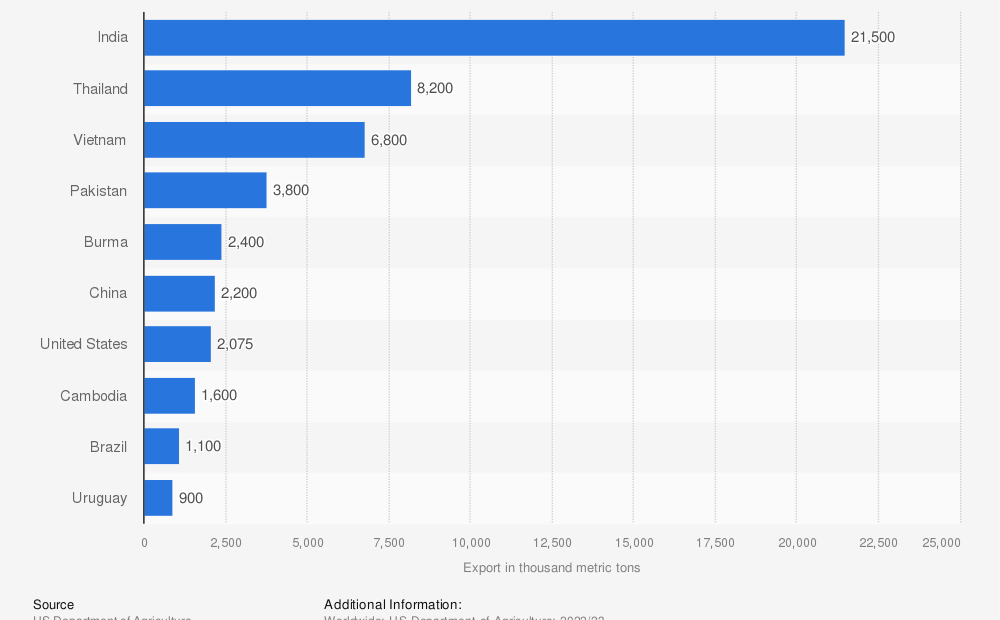No products in the basket.
- Latest
- Trending
Thailand’s rice exports have increased by 11.9% from last year, reaching 5.29 million tonnes from January to August.
The top export markets for Thai rice are Indonesia, Iraq, South Africa, the United States, and China. Global rice prices have risen due to India’s export ban, creating a shortage of 10 million tonnes.
Thailand aims to export 8 million tonnes of rice this year. Myanmar also plans to limit its rice exports. The Philippines is considering a rice import agreement with Thailand. However, drought conditions caused by El Nino may affect next year’s rice production in Southeast Asia.
Warmer, drier weather caused by an earlier El Nino is expected to negatively impact rice production in Asia, leading to higher rice prices and potential food shortages. El Nino, a temporary warming of the Pacific, is becoming stronger due to climate change. Past El Ninos have resulted in extreme weather events such as droughts and floods.

Rice production is facing a major shortage due to climate-related factors such as floods, droughts, and severe weather. This puts food security and livelihoods at risk as prices rise. Demand for rice is increasing as populations grow, but the water-intensive nature of rice cultivation makes it vulnerable to droughts caused by climate change.








